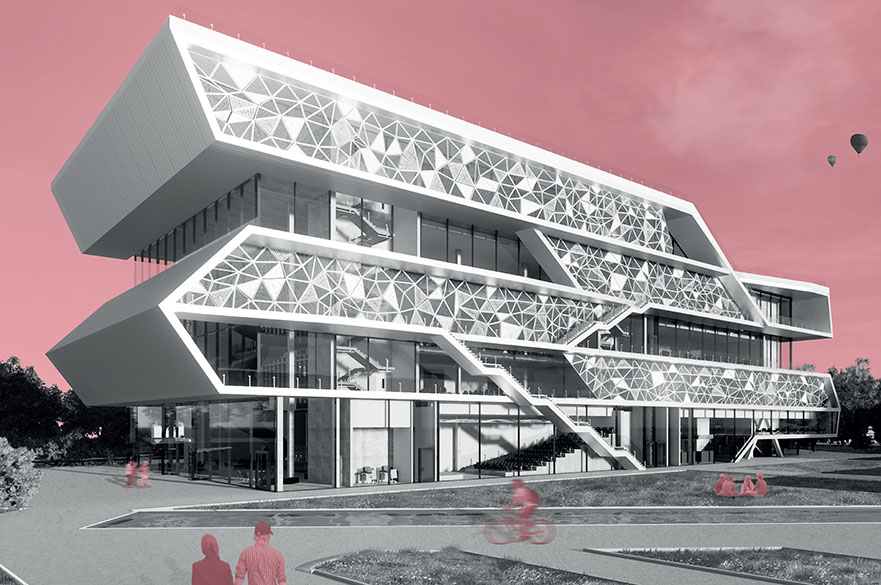How Has Modern Technology Impacted Architectural Design?

Are you ready to dive into the world of building design and construction? Look no further than the Architectural Technology BSc (Hons) undergraduate course offered by Nottingham University. With a focus on practical skill development and real-world experience, this program sets you up for a successful and fulfilling career in the field of architecture.
Here are just a few reasons why the Architectural Technology degree program at Nottingham University is a smart choice for your future:
- Hands-on learning opportunities: From drafting and design exercises to site visits and industry partnerships, you will have plenty of opportunities to apply your skills in real-world scenarios.
- Expert faculty: Our experienced and qualified faculty members are passionate about helping you succeed and will guide you through every step of your academic journey.
- State-of-the-art facilities: Our campus is equipped with modern facilities and resources to support your learning, including a dedicated design studio and 3D printing lab.
- Industry connections: As part of your degree program, you will have the chance to connect with local architecture firms and participate in professional events, giving you a valuable edge in the job market.
In addition to these benefits, the Architectural Technology program at Nottingham University offers a comprehensive curriculum that covers a wide range of topics related to building design and construction. Here are just a few of the exciting courses you can expect to take:
- Building Information Modeling: This course teaches students how to use advanced software programs to create detailed 3D models of buildings and structures.
- Construction Technology: This course focuses on the practical aspects of construction, including materials, building systems, and techniques.
- Architectural Design and History: This course explores the evolution of architectural design from ancient times to the present day.
- Sustainable Design: In this course, students learn about the principles of sustainable design and how to implement them in modern building projects.
But what about after graduation? What can you expect from a career in architectural technology? Here are just a few potential career paths:
- Architectural Technician: As an architectural technician, you will assist architects with the design and construction of buildings, preparing detailed drawings and plans.
- Building Surveyor: Building surveyors are responsible for assessing the condition of existing buildings and making recommendations for improvements or repairs.
- Project Manager: Project managers oversee building and construction projects from start to finish, coordinating with architects, contractors, and other stakeholders.
- Construction Manager: Construction managers supervise the construction of buildings, ensuring that work is completed on time, within budget, and to a high standard of quality.
Ready to get started on your journey towards a career in architectural technology? Apply to Nottingham University's Architectural Technology BSc (Hons) undergraduate course today and take the first step towards your dream job!
Frequently Asked Questions
What is the difference between architecture and architectural technology?
Architecture focuses on the design and aesthetics of buildings, while architectural technology is more concerned with the technical aspects of building construction and implementation. Architectural technology professionals work closely with architects to ensure that buildings are structurally sound, energy-efficient, and safe.
What skills do I need to succeed in the field of architectural technology?
Successful architectural technology professionals have a strong foundation in math and science, as well as excellent analytical and problem-solving skills. They are detail-oriented and able to work independently or as part of a team.
What kind of salary can I expect as an architectural technology graduate?
Salaries for architectural technology professionals vary according to experience, location, and job title. According to the U.S. Bureau of Labor Statistics, the median annual wage for architectural and civil drafters was $57,960 as of May 2020.
What is the job outlook for architectural technology graduates?
The job outlook for architectural technology graduates is strong, with the U.S. Bureau of Labor Statistics projecting a 7% growth rate for architectural and civil drafters from 2019 to 2029. This growth is due in part to increased demand for sustainable and energy-efficient building design and construction.
What are some common misconceptions about the field of architectural technology?
One common misconception is that architectural technology professionals are limited to working on small-scale residential projects. In reality, there are numerous opportunities for architectural technology professionals to work on large-scale commercial, institutional, and infrastructure projects as well.
What kind of professional organizations are available for architectural technology professionals?
There are many professional organizations available for architectural technology professionals, including the American Institute of Architects (AIA), Building Performance Institute (BPI), and the Construction Specifications Institute (CSI). These organizations offer a wide range of resources and benefits, including continuing education opportunities, networking events, and career development support.
Can I pursue a graduate degree in architectural technology?
Yes, many universities offer graduate degrees in architectural technology or related fields, such as building science or construction management. A graduate degree can provide additional opportunities for career advancement and specialization.




Post a Comment for "How Has Modern Technology Impacted Architectural Design?"